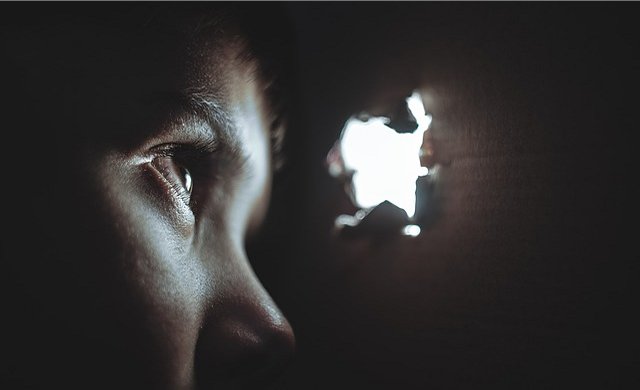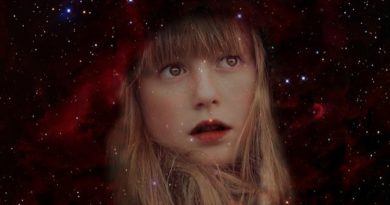The Fair Heavens
He was right. That day and the two weeks following were wonderfully tedious for me. Aside from a few overwrought letters from my mother asking when they should visit, I grinded away at rote, academic labor at its mind-numbing finest. I organized slides based on artists’ names or sometimes the location of their works. I arranged reference books on the empty shelves. Several times, I went to our school’s stately library and pulled volumes for him. The most exciting thing that happened was when a large honey bee flew in through an open windows, and we both jumped nervously around the room, swatting at the insect like two, jittery old maids before it managed to find it’s way out again and into the pollen-filled day.
Occasionally, he asked me to check some of his unpublished papers for grammar and spelling errors. That task was, at least, educational. His work on the monk-painter, Fra Filippo Lippi, master colorist and Renaissance icon, was filled with sober assessments of the exotic rumors that pursued him. The first art historian, Giorgio Vasari, recounted stories of Lippi’s clandestine love life, including the scandalous assertion he had abducted and seduced a fifteen-year-old nun who subsequently fathered his child. Professor Ballard gave these and similar stories little credence, taking a measured but haughty approach to them as he ticked through the more salient points of 15th century patronage and the artist’s formidable legacy.
Still, looking at Lippi’s works, I couldn’t help but think of the voiceless women who graced his pictures; shy, retiring, luminous — important but silent. Meanwhile, Lippi painted himself prominently in his fresco, “Death of the Virgin.” In it, he coyly looks away, his big ears and round head not idealized, but his presence at this holy moment, undeniable. History as he saw fit.
“Let’s go get ice cream,” Ballard said one afternoon. “My treat.”
It was unseasonably hot. My short-sleeved cotton dress was getting wet in the back even though I was sitting near a fan. I put my hair into a ponytail so I could feel the wind on my neck and cool off. We jumped into his two-toned, ’58 Bel Air and headed into town, passing prim, Amish farms sprouting with produce. Set back from the road, a smattering of their plain houses stood among patchworks of fields bearing the emerging fruits of hard-earned labor. Here and there, I saw men and boys in suspenders and long pants, working the land. Clotheslines were laden with bed sheets, modest dresses, and cloth diapers dripping dry in the heat of the day.
“I’m getting a root beer float,” Ballard declared. He never looked at the antiquated farms or their inhabitants.
At the drug store counter, we were greeted by a strapping, freckled, boy with a big smile. It was the first time I saw Ballard flash a grin of his own. He ordered for both of us and with a wink, tipped the soda jerk seventy-five cents, which prompted another round of teeth flashing. We ate at the counter, me with a chocolate sundae and my lanky companion sipping away at his float while a tinny stereo piped out Dion and The Belmonts’ “Wish Upon a Star.” We were the only customers that afternoon. I think the chubby, mustachioed pharmacist was asleep. Maybe he had dipped into the inventory. So, when the bell to the front door jingled, we all turned, even the napping druggist who immediately jumped up and set about organizing his shelves. On second glance, however, he slowed a bit and stared at the new visitor. I saw nothing but could hear someone drawing close — small, quick footfalls growing louder. The boy at the soda fountain snapped his gum as he polished the counter, keeping his eyes straight ahead.
A woman appeared suddenly, emerging from the “pain relief” aisle like an incongruent shadow. She faced us with a pale, agonized look. Her heavy, ankle-length skirt and dark blue top was ominously out of character for the time of year. It took me a moment to realize she was Amish.
“You were at Peter McNowski’s farm two nights ago?” she asked Ballard, her hands in fists at her side.
He had reached the end of his float, and his final sip rumbled with a loud, burbling. He gave her a disapproving once-over. “Peter’s not one of your kind. Why do you care?”
“He is a decent man, a good neighbor.” She bit her lip. “We saw the same thing he did.”
Ballard frowned and glanced at me before answering her. “Why don’t we talk outside. Alone.”
She turned to face the front windows of the store for a moment, revealing her white head covering. “No, please. Let us stay in here, in case someone comes by and sees me.” Her voice had a trace of a German accent.
“Fine. Over there” Ballard said, motioning to a quiet corner near a display of hatboxes and Coty make-up.
“She is with you?” the woman asked, looking at me. Ballard gave a reluctant nod. “Have her come. I would like another female with me.”
“What is this about?” I whispered to the professor as we shuffled across the drugstore.
“We’ll see,” he said.
I clutched my little, beaded coin purse that had a rabbit’s foot in it. It was a birthday gift from my brother before I went off to college. “You’re gonna need it if you hope to get a date.” We both laughed even though it was kind of mean. I snapped open the purse and gave it a quick rub as we walked. Daniel was a goofball but at that moment, I was glad to think of him.
“My name is Miriam Beiler,” the Amish woman told us. “My husband Levi and I live up the way on Horizon Road. We have three children. I hope.”
“What do you mean?” Ballard asked.
“The ones that came to the McNowski’s farm… they came to us too. My youngest, my Ruth — they took her.”
The professor rolled his eyes. “Nonsense. You should be talking to the police, not me.”
Miriam looked insulted. “It’s the truth. And if you are speaking to me like this, then what would the police say?” She closed her eyes and whispered to herself. “Gott verlosst die Seine nicht.” It means, “God does not abandon his own.”
“She could have run away,” Ballard suggested with a wave of his hand. “The light scared her, and she took off. There’s a lot of country out here. You should be out looking for her.”
“We have looked! And prayed. But you must listen. We were getting ready for bed when it came. It was bright… brighter than the moon. We watched it from one of our back windows downstairs, my husband and his parents too. Our son, Samuel, was also there. He is the oldest — nine. Ruth and our middle boy, Abram were in their room. I know because I put them to bed myself. We sang and said prayers,” she said, her eyes watering. “After the light left, we went upstairs but only Abram was there. And he was crying. He was crying rocking, back and forth.”
I was nervous and confused. I looked at Professor Ballard, who didn’t return the favor.
“This is unorthodox. They observe, they don’t interact,” he condescended.
“Abram saw it happen. He is a special boy, he only tells the truth. Now he draws them. All day, he draws.”
“And what exactly, does he draw?” Ballard asked, pulling out his cigarette case.
“Devils,” she hissed. “Devils from the sky.”
Click below to read on…



